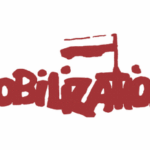
(Giada Bonu Rosenkranz and Anastasia Barone)
FIERCE – Feminist Movements Revitalizing Democracy in Europe is a Horizon project funded by the European Commission, involving 8 countries (Denmark, France, Greece, Italy, Poland, Slovenia, Spain, Turkey). It studies how anti-gender groups and feminist movements are engaging with democratic processes in Europe—through discourse, practices, and alliances.
Part of the project is dedicated to co-creation labs, which are participatory processes involving movements, civil society actors, and individuals to produce a final outcome that is useful for the movements themselves.
In Italy, the chosen focus is education, as this has become one of the most contested battlegrounds in the broader struggle between feminist and anti-gender forces. Over the past decade, anti-gender movements have targeted schools as key sites for promoting a reactionary vision of family, sexuality, and national identity, portraying gender and sexuality education as dangerous forms of indoctrination or moral corruption. These attacks have intensified under recent right-wing governments, with institutional measures—such as the suppression of inclusive curricula, the promotion of a “merit”-based educational discourse, and the appointment of ideologically aligned figures to key roles—serving to further delegitimize feminist and LGBTQIA+ pedagogies. At the same time, feminist movements have responded by developing strategies of resistance, ranging from grassroots mobilizations and alliances with progressive educators to the production of counter-narratives and practical tools.
This dynamic is not specific to Italy. Across Europe and in countries like the United States, gender and sex education have become flashpoints in a broader culture war, used by conservative, populist, and religious actors to galvanize support and polarize public opinion. In the US, for instance, so-called “parents’ rights” bills, bans on discussing gender identity and sexual orientation in schools (such as Florida’s “Don’t Say Gay” law), and the vilification of critical race and gender studies mirror similar discursive strategies seen in Italy—such as the invocation of “gender ideology” as a catch-all threat. These attacks often conflate education about gender and sexuality with moral decay, using children as a symbolic battleground and mobilizing fear to justify censorship and surveillance of school content.
In both contexts—and increasingly on a global scale—schools are being transformed into ideological battlegrounds where struggles over gender, democracy, and the future of pluralism are being played out. The choice to focus on education within the FIERCE project responds directly to this alarming trend, recognizing the urgency of supporting educators, students, and civil society actors in defending inclusive and emancipatory pedagogies. In this sense, education is not only under attack—it is also a site of feminist innovation and resistance.
The first meeting took place in June 2023 and brought together associations and networks (Rete Educare alle differenze, Scosse, Chayn Italia, Rete Lenford, Indici Paritari, Gender Lens, Fondazione Brodolini), as well as individual teachers and experts on gender and diversity education. The second meeting took place in December 2023, and the third in July 2024.
The Italian lab, through a participatory process, decided to produce a Self-Defense Manual for Teachers to counter anti-gender attacks in schools.
The manual, Per ogni genere di educazione. Manueale di autodifesa per insegnanti contro gli attacchi all’educazione delle differenze, produced within the Horizon Europe project FIERCE – Feminist Movements Revitalizing Democracy in Europe, represents a collective feminist response to the mounting attacks on gender and diversity education in Italian schools. Developed through a participatory process involving teachers, activists, and associations such as Educare alle Differenze and Chayn Italia, the manual addresses the urgent need for tools of resistance and self-defense in a climate increasingly hostile to inclusive pedagogy. It is rooted in the belief that education to affectivity and differences (EAAD) is fundamental not only for the individual growth of students, but also for the democratic and pluralistic fabric of society.
The manual situates itself within a broader context of ideological backlash, where discourses around the so-called “gender ideology” are mobilized by anti-gender movements and institutional actors to delegitimize feminist and LGBTQIA+-inclusive educational practices. It documents how this rhetoric has gained traction in Italy through political shifts to the right, censorship attempts, and institutional reconfigurations—such as the renaming of the Ministry of Education to the Ministry of Education and Merit, or the growing influence of pro-family and pro-life actors in public discourse and policy. These dynamics have created an environment in which EAAD is portrayed as divisive, ideological, and threatening to traditional values, thus justifying its marginalization or outright exclusion from school programs.
The manual is structured as a tool of autodifesa (self-defense), offering both theoretical framing and practical guidance. It maps the various forms of resistance educators encounter—ranging from internal opposition within the school community, such as subtle discrediting, administrative censorship, or isolation from colleagues, to external attacks from parents’ groups, media campaigns, and institutional repression. In response, it provides strategic recommendations to navigate these challenges: how to build alliances, communicate effectively with families and leadership, engage in preventive framing of EAAD interventions, and make use of legal protections and democratic principles such as those enshrined in the Istanbul Convention and Agenda 2030.
Crucially, the manual highlights the role of care, solidarity, and community-building as forms of resistance. It advocates for feminist and transfeminist pedagogies that go beyond defensive strategies, reclaiming education as a space of collective empowerment and social transformation. Informed by the legacy of bell hooks and intersectional feminist thought, the manual envisions education not as a neutral transmission of knowledge, but as a radical act of liberation—capable of challenging power structures, fostering empathy, and affirming the right of all individuals to explore and express their identities freely.
Un altro genere di educazione thus stands as both a product and a testimony of feminist democratic innovation in times of backlash. By weaving together personal experiences, collective analysis, and political vision, it becomes a living resource for educators who refuse to remain silent and who continue to imagine and enact more inclusive and just futures—starting from the classroom.
In conclusion, FIERCE is also organizing a transnational lab, following the same format as the national ones, involving European feminist organizations. Together, we drafted policy proposals on gender and sexuality in order to influence gender sensitive candidates at the European elections of June 2024.
28/10/2025

14/10/2025

Journal Article - 2025
Journal Article - 2023
Journal Article - 2023
Journal Article - 2023
Journal Article - 2023
Monograph - 2023
Monograph - 2022
Monograph - 2022
Journal Article - 2021
Journal Article - 2021